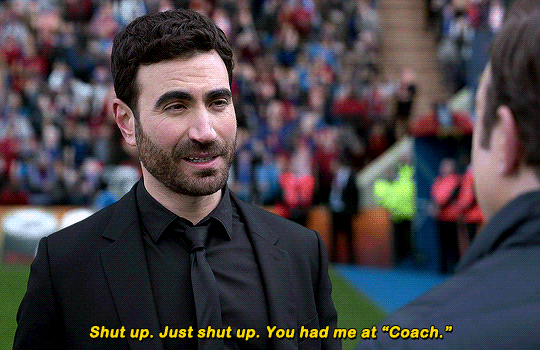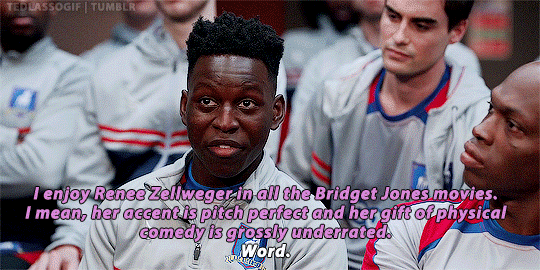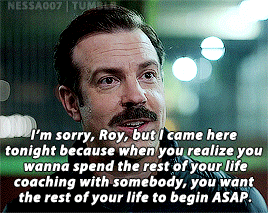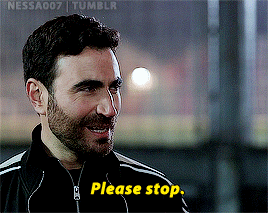One of the first things you’ll learn about me is that I love romantic comedies or, as they’re more commonly known, “rom-coms.” For a while, I rarely watched any other genre of movie. Whether it was How to Lose a Guy in 10 Days, The Wedding Planner, The Proposal, or recents like Set It Up and To All the Boys I’ve Loved Before, I find comfort, familiarity, and joy from watching them.
But if you’re familiar at all with the rom-com or romance genre, you might also be familiar with the discourse that surrounds these films. They’re stigmatized as “feminine” and are often demeaned and given the title of “guilty pleasure” instead of being seen as something of value. People who consider themselves to be high-brow critics (more often than not these are critics who identify as men) enjoy diminishing romance. And this extends beyond the realm of film as well. I’ve seen way too many Twitter threads from bitter male TV showrunners bemoaning the fact that people “ship” characters on their television shows. They insist that “shipping” isn’t the point of watching television — as if romance and love weren’t fundamental aspects of human society and somehow occupied a secondary space or necessity on television.
People aren’t always this blatant in their criticism of rom-coms and romance, however, and I think that’s actually where more of the trouble exists. Even in shows that I wholeheartedly adore and are often well-meaning like New Girl, when men are presented with traditionally “feminine” things like romantic comedies, they balk at the idea of enjoying them. These characters feel the need to qualify their masculinity and to supplement the enjoyment of “feminine” or “girly” activities with the enjoyment of something traditionally “masculine” (which is usually synonymous with toxic masculinity but that is a whole other thing).
Let me give you a quick example: In New Girl, there’s an episode where the three main male characters — Nick, Winston, and Schmidt — are home alone for the evening without their female roommate, Jess. Their “guys night” is going to initially consist of things they can’t do when Jess is around. Schmidt decides to make sangria, which the other two men scoff at, seemingly because it’s viewed as a “feminine” drink (I guess? What makes it a feminine drink? Because it has fruit? I am still so confused by this), but eventually the night becomes a time where the men drink sangria and share their emotions about love and relationships while blasting “I Want to Know What Love Is.” So New Girl turns the trope on its head.
Almost.
When Jess returns, she asks the men what they did and they cover their emotional vulnerability with lies, scattering beer bottles throughout the apartment and even making their voices gruffer. So even though New Girl allowed their male characters to be emotionally vulnerable and said they reject the notion that being emotional is an exclusively female trait, the moment still didn’t land the execution. Emotional vulnerability for men was still the punchline.
And I’m sure you all can think of numerous scenes in television shows and movies where male characters are watching rom-coms, enjoying themselves and/or having an emotional response to the film, and then hastily begin to act hyper-masculine in an attempt to deflect from their enjoyment of the rom-com. It’s weird, isn’t it? That you likely thought of at least one moment where you’ve seen that kind of behavior exemplified. But as my friend and podcast editor Chels and I have often discussed, media tends to punch down on things that they shouldn’t. They make unlikable characters say horrible things or make jokes at the expense of marginalized people, then shrug and tell us we’re not supposed to like the character who’s making the joke anyway. So it’s okay! It’s a way for a show or film to partake in controversial discourse by still trying to cover it up. This happens, of course, with romance and rom-coms too. They often become the punchlines of television jokes.
As a brief aside, that in and of itself is odd to me, since part of the “criticism” I see of rom-coms from people is that they’re filled with tropes. Which, the last time I checked, every film was. Some films just have more CGI and budget to conceal those tropes and play around with them than others. (Rom-coms not having big budgets the way that other films do is a conversation I will direct to some of my more film-minded friends.) But the the truth is that the story beats across these films are all pretty similar. Rom-coms have their own set of tropes and story beats, but every other film does too!
Have you ever watched Star Wars, Harry Potter (forget about its god-awful author for a second), or Lord of the Rings? They’re all based on a blueprint called the Hero’s Journey, and the only difference between them is that they execute different portions of that journey differently. One is set in space, the other two in fictional, magical worlds. But the concept is the same. And yet, you don’t see people criticize the enjoyment of those films nearly as much as they do rom-coms.
There’s also the obvious misogyny involved with the bashing of rom-coms and romance movies, series, or books. Anything that has an audience geared toward women or features female main characters tends to get more vocal criticism. Don’t believe me? I’ll point you in the direction of the internet where Twitter “critics” like to take aim at Captain Marvel, Rose from Star Wars, and pretty much anything female-fronted that ever comes out. (Men make lots of excuses for why they do not enjoy these things, but really you can boil it down to sexism most of the time). For some reason, romance is seen as a genre that is less important, necessary, or “good” (which is subjective anyway!) than something that would win an Academy Award simply because a majority, though not all, of its demographic is women.
And even well-meaning shows like New Girl and others that succeed in breaking down and subverting tropes often fall into the trap of having to qualify the enjoyment of these things. Liking rom-coms or romance doesn’t suddenly erase a traditional and frankly problematic view of masculinity and it’s really weird that we, as a society, think so. (But it also explains a lot about our society and we just don’t have the time to go into all of that at the moment.)
While I have successfully bummed myself out in the first half of this article, I want to pivot and talk about the inspiration for writing it in the first place: Ted Lasso. From its inception, this Apple TV+ series flipped tropes over on their heads and tossed some out altogether. Our titular Ted is an emotional, loving person and the show doesn’t try to undercut that by telling him that his kindness and care is weakness. Other characters try to diminish him, sure, but that is story and conflict. There are moments when Ted’s enthusiasm overruns what he knows needs to be done (see season one’s “All Apologies” when Coach Beard snaps at Ted in the pub) and is actually a blatant weakness. But that’s not the show telling the audience that emotion is weakness — it’s saying that being a good and kind person with an easygoing demeanor isn’t an excuse for not making the hard decision. Ted knew what needed to be done but he didn’t want to do it. That was his problem, not his love for others or compassion for Roy Kent.
Throughout the first season of Ted Lasso, we get the chance to see men become emotionally vulnerable with each other, and it’s never really the punchline. They don’t immediately pretend to be gruff and macho after admitting to weaknesses or crying. And if they do, they learn how to change and grow! We see men bonding, and though initially they’re confused by Ted’s methods, they begin to embrace them and the man behind them. In the world of Ted Lasso, emotions simply exist and some men like Ted are more comfortable with emotions while men like Roy aren’t. And some women are more comfortable with emotions, like Keeley, while some women like Rebecca aren’t! And the show tells us that this is okay; what is not okay is to stay stuck where you are and refuse to grow. Men who are not emotionally vulnerable learn how to be in the show, and men who are emotionally vulnerable learn how to grow in applying that emotion in healthy ways.
This week, Ted Lasso continued to impress me when they dropped an episode called “Rainbow.” Written by Bill Wrubel and directed by Erica Dunton, this was the most thorough and fun rom-com homage I’ve watched since Crazy Ex-Girlfriend (a show everyone should watch and study honestly) did “I’m Almost Over You.” While that episode of the CW’s musical comedy was a love letter to rom-coms from a satirical lens (it lovingly poked fun of the holes in the tropes that rom-coms employ), Ted Lasso’s homage intrigued me more because the show centers mostly around men.
When Ted brings up “Rom-Communism,” a philosophy of his, he begins to rattle off rom-com stars like Tom Hanks and Meg Ryan. Rather than have the team of young men stare blankly at Ted, the show enthusiastically has the men name other famous rom-com stars. And the only joke in the scene isn’t at the expense of the genre — it’s because Dani participates in the conversation with “Jennifer Lopez” a minute or two too late. I was surprised and refreshed to see a scene where a bunch of men know the rom-com genre and the writers don’t immediately punch down and have them pretend they don’t! They are all in agreement throughout the conversation about the best rom-com leading women and men.
The rest of “Rainbow” is an absolute delight, making direct references to so many rom-coms. Ted quotes When Harry Met Sally, Jerry Maguire, Notting Hill, and The Princess Bride. The way the episode is shot is an incredible nod to rom-coms, complete with Roy running to the match at the end of the episode. There are some nods to You’ve Got Mail and Love, Actually too (a running-to-get-somewhere-in-time trope is present in so many rom-coms but I really did get some big Love, Actually energy from Roy trying to get to the match.
But perhaps the most significant moment is when Roy Kent, the guy we’re conditioned to believe is the gruffest, grumpiest man says to Ted: “Shut up. You had me at ‘Coach,’” making a direct reference to Jerry Maguire. (Coach Beard’s little gasp in that moment is hilarious and also indicative of all of us.) He had been so insistent that Ted not quote rom-coms to him, but it had nothing to do with disliking or being unfamiliar with the genre. It was about not wanting to be a coach like Ted wanted him to be. At the end of the episode, Roy was chasing down the thing he loved to tell it how much he loved it. Classic rom-com staple right there.
I love that the show had Roy Kent quote a famous romantic movie line to Ted, but I’m not surprised either. The show constantly reminds us that while Roy is gruff and grumpy and Keeley is sunshine, he’s not going to apologize for or diminish the significance of feeling emotions. When he learns that him being emotional is actually a turn-on for Keeley, he immediately balks at the revelation but then learns the significance of emotional vulnerability and prioritizes it. The show doesn’t say that Roy is “less of a man” because he cries or feels things. It doesn’t say he’s less of a man because he can quote a romantic movie. It doesn’t say that any of these men are less capable soccer players, coaches, or men because they love rom-coms.
The men on the team have their own personalities and journeys with emotional vulnerability — almost all of them enthusiastically met with Dr. Sharon Fieldstone, a sports psychologist, this season — and Ted Lasso’s writers never diminish them for pursuing emotional or mental wellbeing. The journey for these men is just that: a journey. They aren’t often taught to open up to one another, but that doesn’t mean they’re incapable of it. What is especially important is that no one in this episode is portrayed as being “wrong” for loving rom-coms or romance, and no one tries to excuse or explain away their knowledge of the genre. No one is depicted as “wrong” either for crying, feeling emotions, opening up to others, or pursuing therapy. I love that, deeply.
Honestly, Ted Lasso continues to impress. And I cannot tell you how many times I watch this show just wishing more shows would portray male characters the way they do, prioritize emotional vulnerability and empathy the way they do, and craft meaningful characterization the way they do. I am here for all of it. And if it comes with more rom-com homages, even better!











